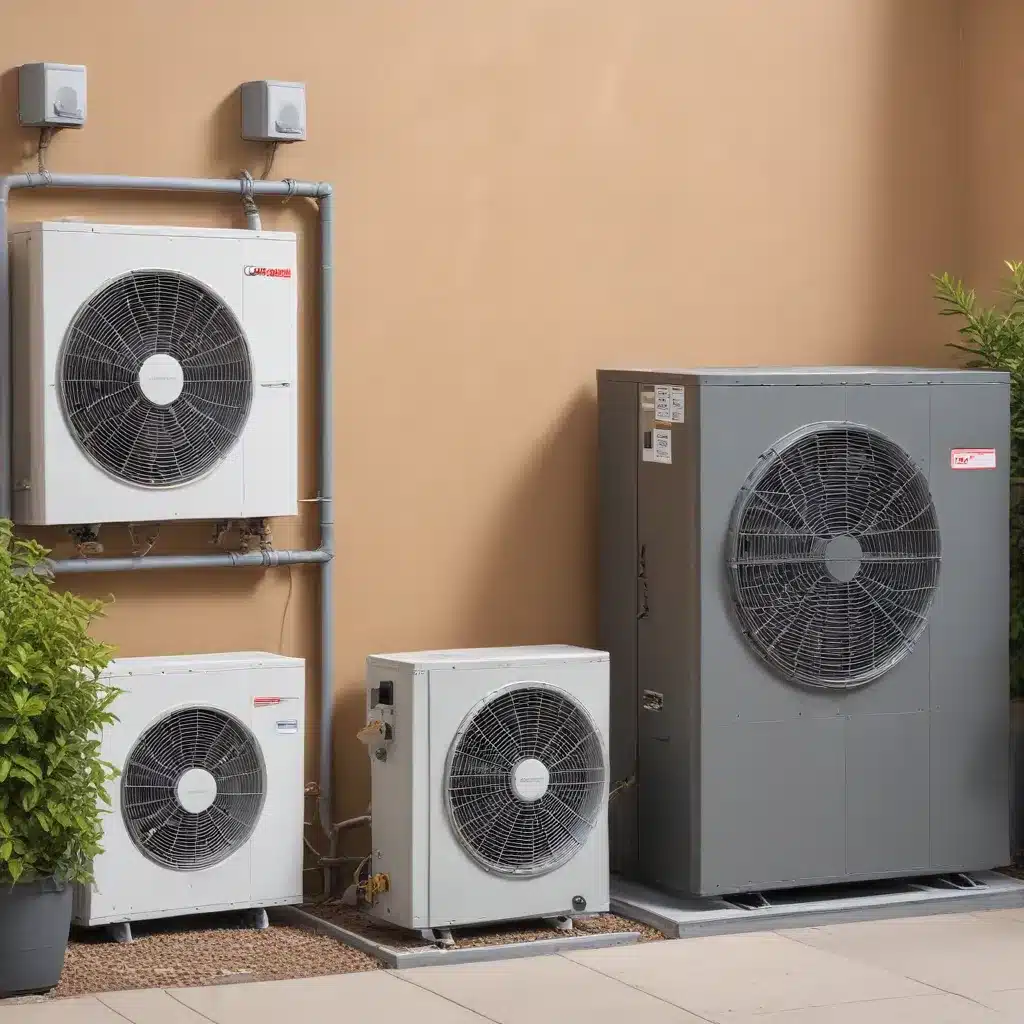
The Evolution of HVAC Technology: Enhancing Comfort and Sustainability
In the ever-evolving landscape of building design and construction, the heating, ventilation, and air conditioning (HVAC) industry has undergone a remarkable transformation. From the ancient civilizations’ rudimentary methods to the cutting-edge systems of today, HVAC technology has revolutionized the way we experience comfort, efficiency, and sustainability in our built environments.
Ancient Beginnings: Regulating Temperature with Ingenious Techniques
The origins of HVAC technology can be traced back to ancient civilizations, where innovative thinkers sought to harness natural elements to regulate indoor temperatures. The ancient Romans and Greeks, for instance, utilized aqueducts, steam, and natural ventilation to create comfortable living and working spaces. The Roman hypocaust system, a precursor to modern-day heating, circulated warm air beneath floors, providing heating for luxurious baths and villas.
The Industrial Revolution: Advancements in Steam-Powered Heating
As the world entered the Industrial Revolution, HVAC technology experienced a significant leap forward. Steam-powered heating systems became widespread, fueling the expansion of factories, mills, and urban infrastructure. Innovations like the first mechanical air conditioning systems emerged, albeit in rudimentary forms, setting the stage for future developments.
Electrification and Modernization: The Birth of the Modern Air Conditioner
The turn of the 20th century saw a pivotal moment in HVAC history with the invention of the modern air conditioner by Willis Carrier in 1902. This revolutionary technology revolutionized cooling, making it accessible for commercial and residential use. Simultaneously, the development of central heating systems, thermostats, and refrigeration technologies became commonplace, enhancing comfort and productivity across various sectors.
Embracing Energy Efficiency and Sustainability
As the world’s focus shifted towards environmental awareness and sustainability, HVAC technology has risen to the challenge, offering innovative solutions to reduce energy consumption and carbon footprints.
Advancements in HVAC Efficiency
Innovations such as variable refrigerant flow (VRF) systems, heat pumps, and smart thermostats have significantly reduced energy consumption while maintaining optimal comfort levels. VRF systems, for instance, allow for individualized temperature control in different zones, optimizing energy usage based on demand. Meanwhile, heat pumps have emerged as a greener alternative to traditional heating methods, utilizing electricity to transfer heat from one place to another, rather than burning fossil fuels.
Sustainable Materials and Building Envelope Performance
Advancements in insulation and building materials have also contributed to the improved energy efficiency of HVAC systems. Enhanced building envelope performance, achieved through the use of advanced insulation and airtight construction techniques, helps minimize heat transfer, reducing the burden on heating and cooling systems.
The Integration of IoT and Smart Technology
The integration of IoT (Internet of Things) and smart technology has ushered in a new era of intelligent HVAC systems. Smart thermostats, equipped with sensors and Wi-Fi connectivity, can learn user preferences, adjust temperature settings based on occupancy patterns, and even communicate with other smart devices in the home. This level of automation and real-time monitoring enables personalized comfort and significant energy savings.
Emerging Trends: Shaping the Future of HVAC
As the HVAC industry continues to evolve, exciting new trends are emerging that promise to redefine the way we heat, cool, and ventilate our living and working spaces.
Zero-Net-Energy Buildings
The concept of zero-net-energy buildings, where the total amount of energy used by the building on an annual basis is equal to the amount of renewable energy created on-site, is gaining traction. HVAC systems play a crucial role in achieving this ambitious goal, with the integration of renewable energy sources such as solar power and geothermal systems.
Augmented Reality Maintenance
Cutting-edge HVAC systems are integrating augmented reality (AR) technology to enhance maintenance and service. AR-powered applications can provide step-by-step guidance for technicians, overlaying virtual instructions and diagnostics directly onto the physical equipment. This innovation streamlines the maintenance process, reduces downtime, and ensures optimal system performance.
Advanced Air Purification Systems
Ensuring indoor air quality has become a top priority, and HVAC technology is responding with advanced air purification systems. These systems incorporate high-efficiency particulate air (HEPA) filters, UV germicidal irradiation, and even the use of photocatalytic oxidation to remove harmful pollutants, allergens, and microorganisms from the air.
Embracing the Future of Sustainable HVAC
As we navigate the ever-evolving landscape of HVAC technology, it is clear that the future holds immense promise. By embracing the latest advancements in energy-efficient systems, smart automation, and sustainable solutions, we can create built environments that not only provide unparalleled comfort but also contribute to a greener, more resilient future.
At DD Plumbing and Heating, we are at the forefront of this technological revolution, offering our clients cutting-edge HVAC systems that seamlessly integrate sustainability, efficiency, and personalized comfort. Our team of experts is dedicated to guiding you through the vast array of HVAC options, ensuring that you make informed decisions that align with your unique needs and environmental goals.
Whether you’re a homeowner seeking to upgrade your heating and cooling system or a commercial property manager aiming to future-proof your building, we are here to help. Contact us today to explore the latest advancements in HVAC technology and unlock the full potential of your living or working spaces.
Key Takeaways:
- HVAC technology has evolved from ancient civilizations’ rudimentary methods to modern, cutting-edge systems that prioritize comfort, efficiency, and sustainability.
- Advancements in energy-efficient technologies, such as VRF systems, heat pumps, and smart thermostats, have significantly reduced energy consumption while maintaining optimal indoor comfort.
- The integration of IoT and smart technology has ushered in a new era of intelligent HVAC systems, enabling personalized comfort, automation, and real-time monitoring.
- Emerging trends, including zero-net-energy buildings, augmented reality maintenance, and advanced air purification systems, are shaping the future of HVAC and driving the industry towards a more sustainable future.
- By partnering with DD Plumbing and Heating, you can unlock the full potential of HVAC technology and create built environments that prioritize comfort, efficiency, and environmental stewardship.


